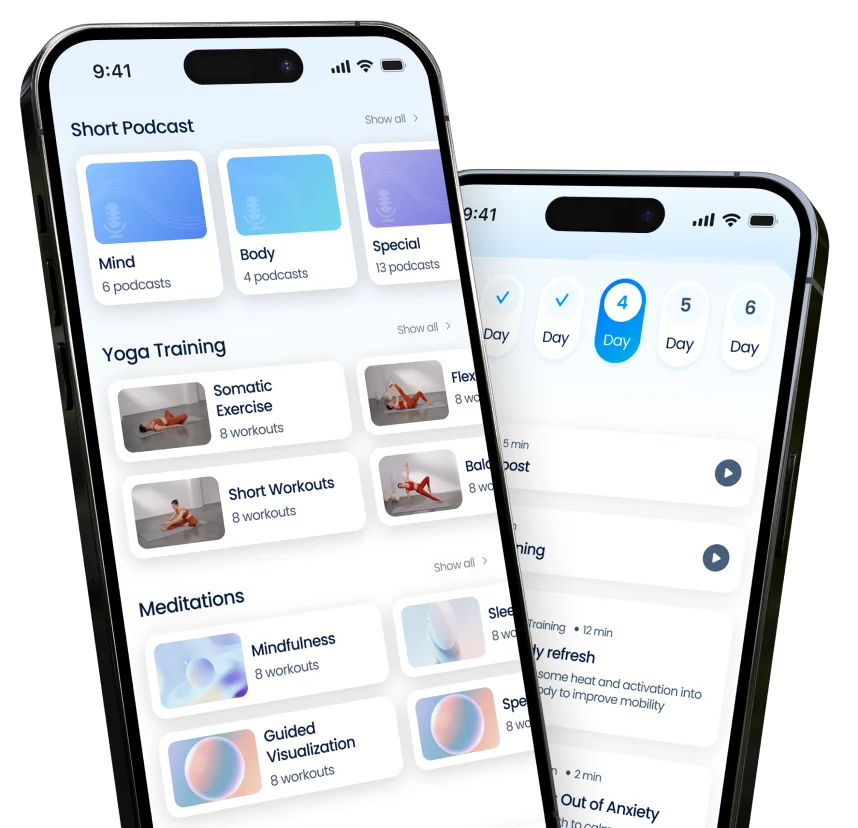50+ Empowering Positive Affirmations for Kids: Building Mental Resilience

Positive affirmations for kids have incredible power. These simple yet impactful phrases can significantly boost a child’s confidence, self-esteem, and overall well-being! Just like the best types of meditation for adults, affirmations can be a game-changer for our little ones.
Positive affirmations are short, encouraging statements that children can repeat to themselves, helping to instill positive beliefs and foster emotional resilience. They’re not just for grown-ups — words for women, words of affirmation for men, and even words for teens can be adapted for younger children. By incorporating these affirmations into a child’s daily routine, we can help them develop a strong sense of self-worth and a much healthier outlook on life.
Understanding positive affirmations for kids
What are positive affirmations?
Positive affirmations for children are short, encouraging phrases designed to foster a healthy mindset, build a strong mental foundation, and reinforce positive self-talk.
Benefits of positive affirmations for children
Incorporating daily affirmations into a child’s routine can yield numerous benefits. For 5-year-olds, these statements can boost confidence and self-esteem, helping them develop a positive self-image and believe in their own abilities. This newfound confidence often enhances their interactions with others and encourages them to take on new challenges.
As children grow, the benefits of affirmations evolve. For 10- and 11-year-olds, morning affirmations can build resilience, enabling them to face challenges with a positive attitude. This practice reduces the impact of negative experiences and equips them with the mental tools to navigate increasingly complex social and academic situations.
Also, consistent use of affirmations can significantly improve a child’s emotional regulation and academic performance. By starting each day with positive self-talk, youngsters can approach their studies with a growth mindset, leading to better focus and improved learning outcomes. This practice also helps reduce stress and anxiety, creating a more balanced and happy childhood experience.
Getting started with positive affirmations
Let’s explore how and when to effectively introduce empowering statements to young minds.
Best ages to begin using affirmations
While there’s no strict age limit for starting affirmations, it’s essential to tailor them to a child’s developmental stage. Here are some guidelines:
- Toddlers (2-3 years): Simple phrases like “I am loved” or “I can do it” work well.
- Preschoolers (3-5 years): Introduce more specific statements such as “I am kind” or “I am smart.”
- School-age children (6-12 years): Use more complex affirmations that address self-esteem, resilience, and personal growth.
- Teenagers (13+): Encourage them to create their own affirmations that resonate with their experiences and goals.
Remember, every child develops at their own pace, so adjust these guidelines based on your child’s individual needs and understanding.
How to introduce affirmations to kids
Introducing positive statements to children can be fun and engaging. Here are some effective strategies:
- Lead by example: Start using affirmations yourself and explain their purpose to your child.
- Make it playful: Turn affirmations into a game or incorporate them into daily activities.
- Use visual aids: Create colorful posters or cards with affirming phrases for younger children.
- Personalize the experience: Help your child choose or create statements that resonate with them.
- Establish a routine: Incorporate daily affirmations into morning or bedtime rituals.
- Reinforce with action: Encourage behaviors that align with the positive statements.
- Be consistent: Practice regularly to make affirmations a natural part of your child’s thought process.
50 powerful positive affirmations for kids
Here’s a collection of 50 powerful affirmations tailored for young minds, categorized to address various aspects of their growth and development.
Self-esteem and confidence boosters
- I am worthy of love and respect.
- I’m confident and brave in all situations.
- I’m happy being myself.
- I accept and appreciate who I am.
- I am enough just as I am.
- I believe in my abilities.
- I’m valuable and important.
- My best effort is always good enough.
- I’m proud of my achievements.
- I can overcome any challenge.
- I’m unique and special in my own way.
- I have many talents and strengths.
- I’m capable of great things.
Learning and growth mindset affirmations
- I’m smart and always eager to learn.
- I love discovering new things.
- Mistakes help me grow and improve.
- Practice makes me better every day.
- I’m ready to learn and explore.
- I can tackle difficult tasks.
- I can achieve my goals with persistence.
- I’m a creative problem-solver.
- My mind is full of brilliant ideas.
- I enjoy challenging myself.
- Every day is a new opportunity to learn.
- I’m curious about the world around me.
- My brain grows stronger when I learn.
Kindness and empathy statements
- I’m kind to others and myself.
- I show respect to everyone I meet.
- My actions can make others feel better.
- I’m a good friend to those around me.
- I listen to others with an open heart.
- I celebrate the success of others.
- I treat everyone with compassion.
- My words have the power to uplift others.
- I’m patient with myself and others.
- I appreciate the differences in people.
- I spread joy wherever I go.
- I’m always ready to help those in need.
Emotional regulation phrases
- I can handle any emotion I feel.
- I’m in control of my reactions.
- I choose to focus on the positive.
- I bounce back from setbacks quickly.
- My feelings are valid and important.
- I’m calm and peaceful in any situation.
- I trust in my ability to solve problems.
- I’m stronger than any challenge I face.
- I choose happiness and joy.
- I’m patient with myself as I grow.
- I’m grateful for all the good in my life.
- I embrace change as an opportunity.
These affirmations can be particularly effective when incorporated into daily routines, such as morning rituals for youngsters or as part of bedtime practices for 5-year-olds. For older children, like 10 or 11-year-olds, encourage them to choose affirmations that resonate with their personal experiences and goals.
Effective ways to use affirmations with kids

Here are some effective strategies to help young ones embrace and benefit from daily affirmations.
1. Daily routines for affirmations
Integrating positive statements into everyday activities can make them a natural part of a child’s life. We recommend starting the day with morning affirmations to set a positive tone. For instance, while brushing teeth or eating breakfast, encourage your little ones to repeat empowering phrases.
Bedtime is another excellent opportunity to reinforce positive thinking. For 5-year-olds, simple statements like “I am kind” or “I can do hard things” work well. As children grow, adjust the complexity; 10-year-olds might benefit from more specific affirmations like “I am capable of learning new things every day.”
2. Making affirmations fun and engaging
Turning positive self-talk into a game can increase its appeal and effectiveness. We suggest creating a “positive phrase jar” where family members can add their favorite uplifting statements. Each day, have your child pick one to focus on.
For older children, like 11-year-olds, consider turning affirmations into a songwriting exercise. This creative approach not only makes the process enjoyable but also helps internalize the positive messages. Another fun idea is to use sidewalk chalk to write encouraging words on the driveway, making the affirmation process a colorful and interactive experience.
3. Using affirmation cards and journals
Affirmation cards and journals can be powerful tools for reinforcing positive thinking. We recommend creating a set of cards with uplifting messages tailored to your child’s age and needs. For younger kids, use simple drawings alongside the words to make them more engaging.
Encourage older children to design their own cards to foster creativity and personal connection to the affirmations. Journaling can also be an effective way to incorporate daily positive statements. For example, suggest that your child write down one affirmation each day and reflect on how it made them feel. This practice not only reinforces positive thinking but also improves writing skills and emotional awareness.
Tailoring affirmations for specific situations: 15+ examples
Positive self-talk can be adapted to address various situations children face daily. By customizing these empowering phrases, we can help young minds navigate different challenges with confidence and optimism.
Morning affirmations to start the day
Starting the day with uplifting statements can set a positive tone for children. Here are some morning affirmations to boost their confidence:
- “Today is full of exciting opportunities.”
- “I’m ready to learn and grow.”
- “I believe in myself and my abilities.”
- “I’m strong, brave, and capable.”
- “I choose happiness and kindness today.”
Encourage your child to repeat these phrases while getting dressed, eating breakfast, or during the morning commute. This practice can help them feel empowered and prepared for the day ahead.
Bedtime affirmations for peaceful sleep
Nighttime affirmations can help children relax and develop a positive mindset before sleep. Consider these soothing phrases:
- “I’m grateful for all the good things in my day.”
- “My body and mind are relaxed and at peace.”
- “I’m safe and loved.”
- “Tomorrow is a new day full of possibilities.”
- “I’ve done my best today, and that’s enough.”
Incorporate these calming statements into your child’s bedtime routine to promote restful sleep and positive self-reflection.
Affirmations for test-taking and challenges

Empowering phrases can help children face academic and personal challenges with confidence. Try these affirmations:
- “I’m well-prepared and ready to do my best.”
- “Mistakes are opportunities to learn and improve.”
- “I can stay calm and focused under pressure.”
- “My effort and hard work will pay off.”
- “I trust in my abilities to overcome obstacles.”
Encourage your child to repeat these statements before tests, presentations, or when facing difficult tasks. This practice can help reduce anxiety and boost their self-assurance in challenging situations.
Role of parents in supporting positive affirmations
Parents play a crucial role in introducing and reinforcing positive self-talk for their children. Their involvement can significantly impact the effectiveness and consistency of these empowering practices.
Set an example
Parents should be the primary role models when it comes to using uplifting statements. Children often mimic the behaviors and attitudes of their caregivers, so it’s essential for parents to practice positive self-talk themselves.
This approach helps normalize the practice and demonstrates its real-world application, making it more likely for children to embrace and benefit from these empowering techniques.
Reinforcing affirmations in daily life
Integrating supportive statements into everyday activities can be highly effective. Here are some ways parents can reinforce positive thinking in their children’s daily lives:
- Praise efforts: Reinforce positive behavior by acknowledging their efforts with specific, encouraging words.
- Personalized approach: Help children create their own meaningful phrases tailored to their unique experiences and challenges.
- Consistency is key: Make supportive self-talk a regular part of family conversations and activities to reinforce its importance.
By incorporating these strategies, parents can help foster a positive mindset that benefits their children throughout their lives, from preschool years to adolescence and beyond.
Nurturing positive self-talk in children
Positive affirmations are a powerful tool for nurturing confidence and resilience in children. By incorporating these uplifting statements into daily routines, parents can help their kids develop a strong sense of self-worth and optimism.
Remember that consistency and personalization are key to making affirmations effective. As you embark on this journey with your child, you’re not just boosting their self-esteem; you’re equipping them with valuable emotional skills for life. Start small, make it fun, and watch as positive self-talk transforms your child’s outlook and well-being.








